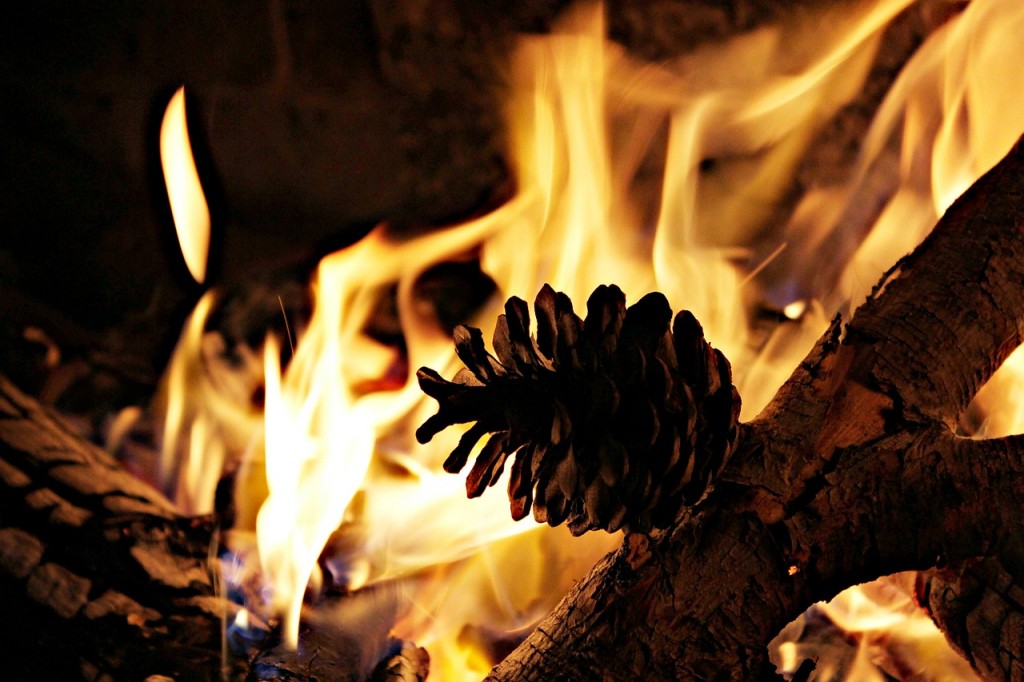Pros and Cons of Soft vs. Hardwoods
 Did you know that the density of your firewood can determine how long your fire will burn and how much heat it gives off? The wood from different types of trees can vary widely in how much heat the wood produces, how the fire will burn and the overall fire quality. When you know more about soft and hardwoods, you can choose the right type of firewood for a perfect fire in your fireplace or wood-burning stove.
Did you know that the density of your firewood can determine how long your fire will burn and how much heat it gives off? The wood from different types of trees can vary widely in how much heat the wood produces, how the fire will burn and the overall fire quality. When you know more about soft and hardwoods, you can choose the right type of firewood for a perfect fire in your fireplace or wood-burning stove.
Some terms you need to know when it comes to firewood and burn quality include:
- Density – dry weight of the wood per unit volume.
- Green weight – the weight (in pounds) of a cord of freshly cut or green wood before it’s dried.
- BTU – A British Thermal Unit is a standard measurement used to state the amount of energy that a fuel releases. (One BTU is the amount of heat needed to raise the temperature of one pound of water by one degree Fahrenheit.)
- Coaling – When wood burns down to form long-lasting coals of burning wood. Long-lasting coals are especially good for use in wood-burning stoves since the fire can burn for a longer period.
Softwoods
Softwoods refer to conifers or evergreens, such as firs, pines, cedars and spruces. Generally, softwoods aren’t as dense as hardwoods.
The benefits of burning softwoods are:
- They’re easier to ignite since they contain resin.
- They typically burn cleaner.
- They tend to burn more rapidly with a high, hot flame.
- They may produce a pleasant scent when burned.
The disadvantages of softwoods are:
- They produce a sticky sap that get on your fingers and clothes, and can gum up stove pipes.
- They burn out quickly, requiring more frequent attention.
- They produce more popping and sparks due to trapped moisture, which can lead to potential house fires.
Hardwoods
Hardwoods refer to deciduous trees or those that shed leaves. A cord of seasoned hardwood is generally denser, weighing twice as much as a cord of seasoned softwood.
The advantages of burning hardwoods are:
- They burn longer than softwoods, reducing your fuel costs
- They produce twice as much heat compared to softwoods since they’re denser.
- They produce more long-lasting coals.
- Wood from fruit or nut-bearing trees produce a sweet-smelling aroma
A con of hardwoods is they’re more difficult to ignite when starting a fire.
To determine, which type of wood may be best for your fire, refer to this guide from the Indiana Department of Natural Resources, Division of Forestry. Just make sure you burn seasoned firewood that has been stored in a dry place for at least six months.
Regardless of which type of wood you use in your fireplace or wood-burning stove, the professionals at T.J.’s Chimney Service, located in Greenfield, IN, recommend that you have your fireplace or wood-burning stove inspected and cleaned at least once a year to ensure they’re in good-working condition and to reduce your risk of a chimney fire. Contact T.J.’s Chimney Service to schedule your inspection today.

